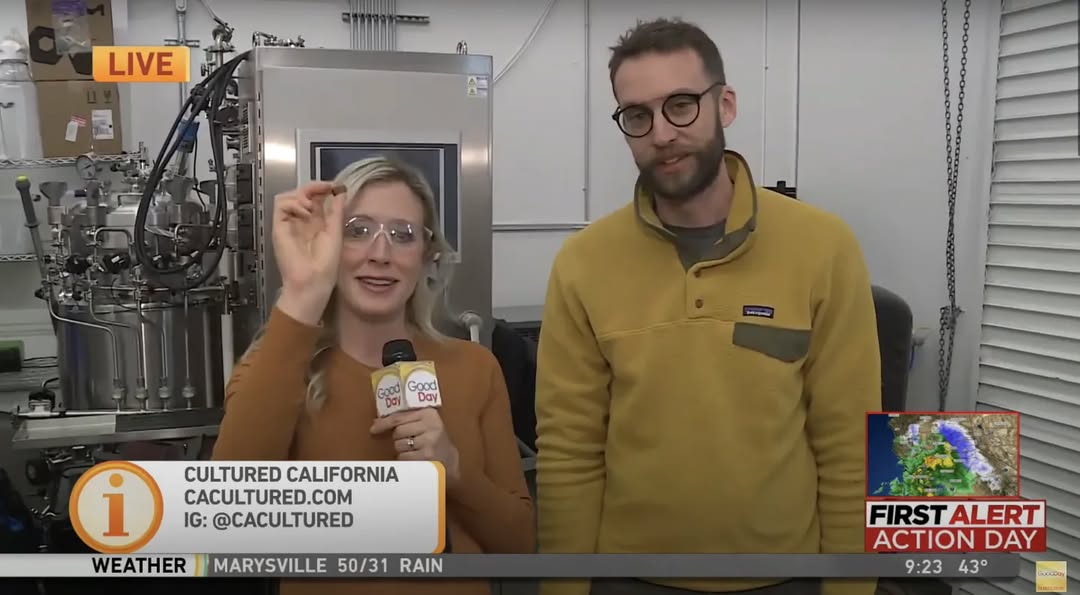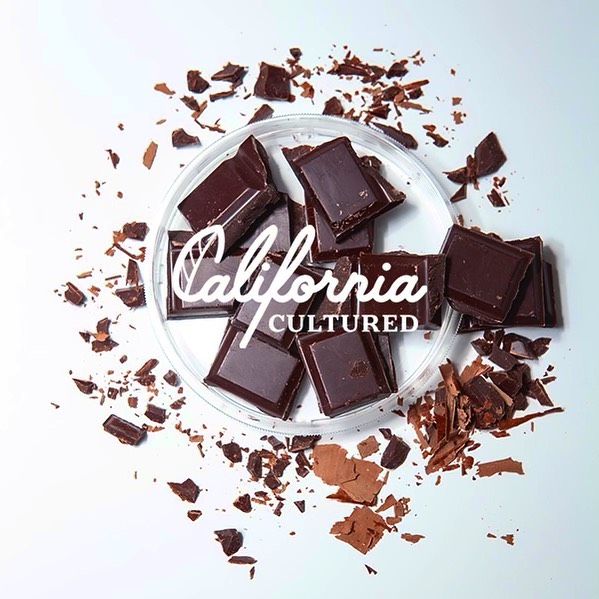
There is a bitter truth behind chocolate, and it’s that the harvesting of cacao trees — from which cocoa is derived — is a trade that is ethically dubious and ecologically unsustainable. Just how problematic is cocoa production? Enough that John Oliver devoted an episode to it two years ago. The conundrum is that while cacao trees are vital for local small farmers in West Africa, that farming is often done on deforested land, and the farmers rarely see adequate compensation from the big chocolate companies. There are smaller brands working to change the system, but there may also be another option on the horizon: lab-grown chocolate. Say what now? Indeed, our chocolate bars could be coming from a petri dish to the pantry as soon as next year. One writer at The Guardian just sampled a morsel from Sacramento company California Cultured, and called it “basically indistinguishable from regular dark chocolate.”
Humans are chocolate monsters: Globally, humans consume more than 7m metric tons of chocolate per year, and our appetite is only growing. In the US, chocolate demand surges in October in advance of Halloween; the National Retail Federation estimated a $3.9bn US spend on Halloween candy this year, with chocolate options like Reese’s Peanut Butter Cups and M&Ms dominating. … Chocolate prices reached a historic high of $12,000 per metric ton in 2024, though the rising costs have not truly deterred consumers, explains Bloomberg Intelligence market analyst Ignacio Canals Polo.
We’re getting less chocolate in our candy: Big confectionery companies like Mondelez, Mars and Nestlé are most heavily affected by price hikes. Canals Polo says they are “trying to adjust their portfolios to rely less on cocoa” by “shrinkflating” their products; reformulating recipes to use cheaper ingredients, such as vegetable oil instead of cocoa butter; and promoting non-chocolate confections, like biscuits, gummy candy or chocolate-free spins on classic products – think KitKats enrobed in flavored cream coatings.
Better noshing through chemistry? California Cultured takes cuttings from regular cacao plants and cultivates the cells on plates containing a nutrient-rich medium made mostly of sugar and plant extracts. The company then grows specific cell types, such as those that produce cocoa butter or cocoa flavanols, explains Alan Perlstein, the company’s CEO. After that comes harvesting, fermenting, drying, milling and packaging the product into, functionally, a lab-grown cocoa powder to be used in confections like bars and drinks. Other companies, such as Nukoko and ChoViva, are developing chocolate alternatives made from ingredients including fermented fava beans or sunflower seeds. Scientists are experimenting with chocolate made from ground cacao husks typically discarded in the conventional chocolate-making process.
Who might take a bite: “I think in certain niche sectors, like tech, it’s going to be very, very cool to be like, ‘It’s lab-grown chocolate – you can have more control, you can geek out on the very fine nuances,’” says Eagranie Yuh, a former chocolatier and chocolate educator. But Yuh also thinks “most people have a visceral response” to the idea of lab-grown food. A 2023 German survey of 727 people found that food-technology neophobia – a fear of the new – strongly influenced attitudes about lab-grown meat, though even the wary were at least willing to try it.
Other pros to lab-grown cocoa: Emphasizing adjustments to chocolate, such as tweaked levels of caffeine and health-supporting polyphenols, also adds “a rational element to what is largely an emotionally driven product”, says Yuh. “Chocolate is very human.” For instance, we commonly prefer the tasty but lower-quality bars of our youth. Yuh says the human narrative behind products can also be important for chocolate consumers, such as knowing that ingredients were responsibly grown and processed by people who were fairly paid.
Whoa whoa whoa, wait a sec… As an adult you can have a job titled “chocolate educator”?? Why am I always the last one to find out about these gastronomically superior life professions?! What was I even taught in school, with all that doctor or lawyer or accountant nonsense, when all this time I could’ve been Willhemina Wonka! (Minus the creepy business, but I digress). Once again, I’ll just have to soothe my disappointment over some leftover Halloween snack-size Reese’s cups. And sometime next year, my solace chocolate may just be lab-grown. California Cultured is pending FDA approval in the US, but they already are selling products with the Japanese company Meiji. Until then, one prominent, ethical chocolate company is Tony’s. I learned of them through that John Oliver episode, where, upon noting their brightly-colored packaging, Oliver memorably quipped that the company looked like it was “run BY and FOR clowns.” He’s really not wrong on that point.












It’s definitely something I’d try!
Totally would.
All I can think of is the mochlate that Monica on Friends had to try and make recipes with lol. Hope this stuff proves to be good.
100% agree “just waiting for it to stop bubbling” lol. I will certainly give it a try though.
That’s exactly what I was thinking!
Yeah, I’d try it. I don’t drink coffee, so chocolate is my caffeine source of choice. And, no, I don’t prefer the chocolate bars of my youth. Once I discovered and developed a taste for dark chocolate, milk chocolate no longer tastes like food to me. Now that the weather’s changing, I need to plan a Pitango sipping chocolate moment to celebrate the season.
Interesting post! Thanks Kismet!
Yup I’d eat it. We need to find sustainable ways to live and eat. The climate crisis is THE most important issue we face.
Make it sustainable and affordable and I’ll buy it.
I would definitely eat it and I really hope this takes off because it’s such an unethically grown thing. I think John Oliver said that it was actually difficult to really know where it all comes from and so even Tony’s can’t guarantee it’s totally slave-free, but they say something along the lines of they try really hard to make sure it’s ethically obtained.
I saw a video once (maybe on that John Oliver?) where a journalist gave one of the cacao harvesters some chocolate to taste because they had never had it, and I think he agreed it was good. It was more just shocking to learn that they had never had it
Yes, I would. I make hot cocoa year round, every day in fact (it’s my indulgence after quitting alcohol, I don’t eat candy as some non drinkers do) & hopefully this would help bring cocoa prices down.
I’ll eat it.
Nah thanks. I’d rather fix the existing problems with chocolate than rely on more lab grown things. Lab grown diamonds, fine. Lab grown meat (or, someday, a lab grown fur coat), maybe. But there’s something about distancing ourselves further and further from the natural world that feels like next steps toward Wall-E.
You know what chocolate I miss? The *actual* chocolate from our childhoods, not the already cheaped out gross versions of how they are now. A Milky Way or a Snickers (or a Butterfinger, for that matter) used to be legit treats. Now they feel vaguely dirty, a greasy hit of cheap sugar and low quality.
No thank you, I prefer real food. I’ll be more mindful of where my chocolate comes from, though. We have cacao farms & chocolate makers here in Hawaii, so I’ll continue to support them. It doesn’t all come from West Africa, though; it is, after all, a New World plant. The Aztecs considered it the food of the gods!